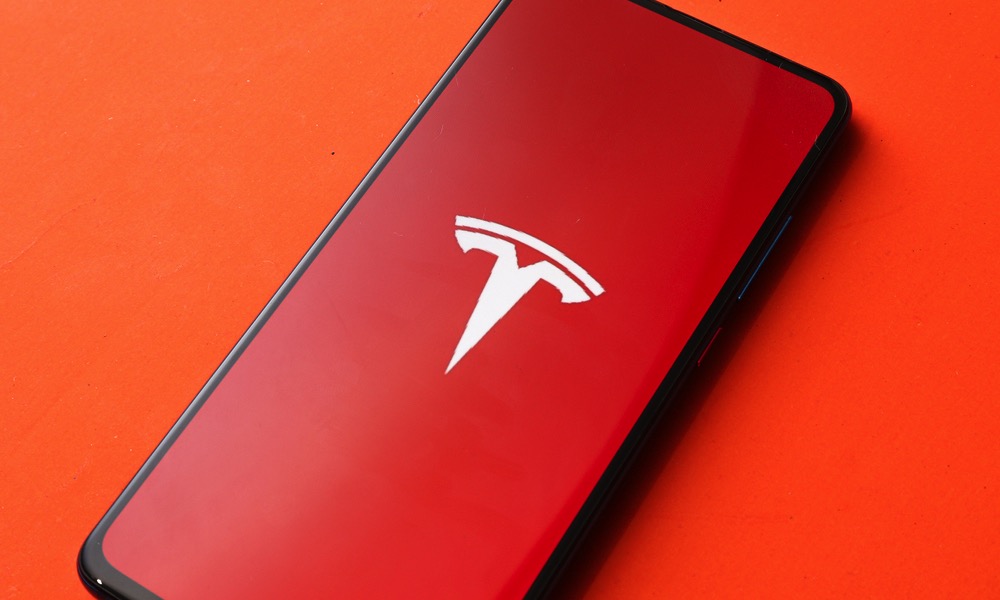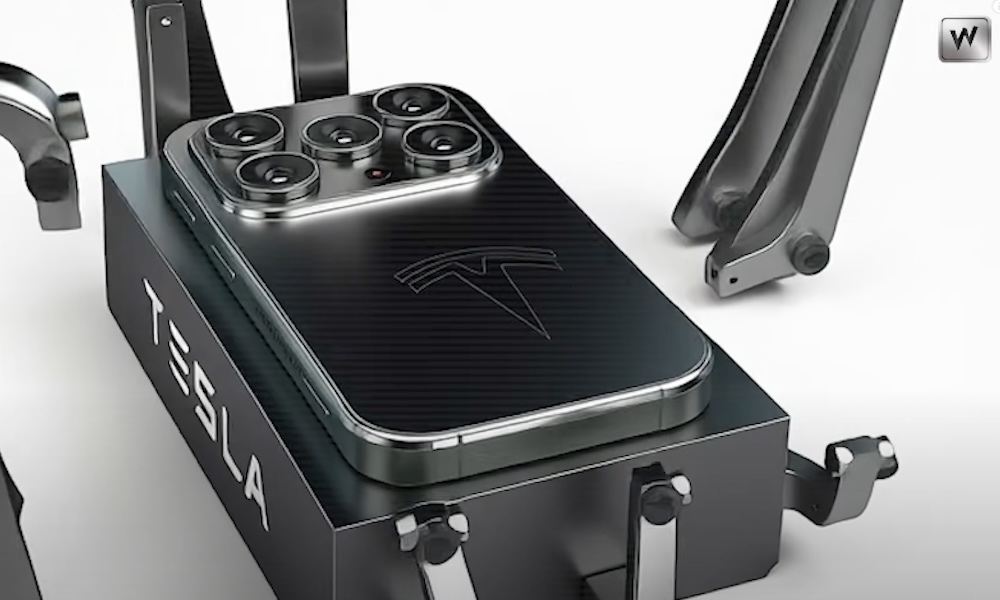Is the Tesla ‘Pi Phone’ Real?
 sdx15 / Shutterstock
sdx15 / Shutterstock
Toggle Dark Mode
Rumors have surfaced over the past month about Tesla entering the smartphone market. Several viral posts claim a Tesla “Pi Phone” is in the works with features like solar charging and free Starlink internet connectivity. Unfortunately, there’s no credible evidence that the “Pi Phone” is on the way — yet.
The International Business Times (IBT) suggests the Tesla Pi Phone will be a competitor to next year’s “iPhone Air 2” — a potential successor to the iPhone Air that launched last month. We haven’t yet speculated on the next iteration of Apple’s new ultra-thin iPhone, and there’s no word on when — or even if — a second-generation model will arrive.
Nevertheless, IBT claims the Tesla Pi Phone may include a “graphene-infused polymer body,” a larger “solar-charging” display than the iPhone Air, and is expected to be powered by the N1 neural chip from one of Elon Musk’s other companies, Neuralink.
IBT positions the Pi Phone as being “designed for seamless integration with other Tesla technologies,” “mind-machine interface functionalities,” and “…as a central hub for the entire Tesla ecosystem.”
That all sounds impressive on paper — but the evidence is thin.
For one thing, IBT’s report appears to draw heavily from past concept renders and social media speculation rather than official sources.
Further, not to be confused with Apple’s new N1 wireless chip, Neuralink’s N1 is a brain-computer interface (BCI) designed to help individuals with paralysis control computers and prosthetics directly with their thoughts. This makes it an odd chip to put into a smartphone.
Uses for the N1 are primarily directed towards medical and therapeutic applications, including helping people with paralysis, spinal cord injuries, and neurological disorders. More widespread BCI applications, such as direct brain-computer interaction for everyday tasks, remain speculative.
While Neuralink is owned by Elon Musk, it’s a separate and distinct company from Tesla. Neuralink is privately held, while Tesla is traded on the NASDAQ. We found no evidence that Musk plans to merge the two companies.
BCI technology and Neuralink’s N1 chip are largely experimental and far from a mainstream consumer product. While we’re not in the business of betting against Musk or Neuralink’s potential to succeed, it’s still early. There are risks and uncertainty with medical implants, as well as ethical and privacy concerns to overcome. Moreover, neither Tesla, Musk, nor Neuralink has publicly announced the Pi Phone.
Is the Pi Phone a rumor or a hoax? It’s too soon to tell. Currently, most evidence appears to come from YouTube or social media, often accompanied by clickbait-style headlines. It’s not the first time we’ve seen rumors of a “Tesla Phone,” but Musk seemed to quash these last year when he told podcast host Joe Rogan that Tesla has no plans to build a smartphone and would only do so if companies like Apple and Google blocked Tesla’s apps and services. As of today, there’s no verifiable evidence that a Tesla smartphone will launch next year. Still, given Musk’s history of defying expectations, we can’t rule out the idea entirely.








